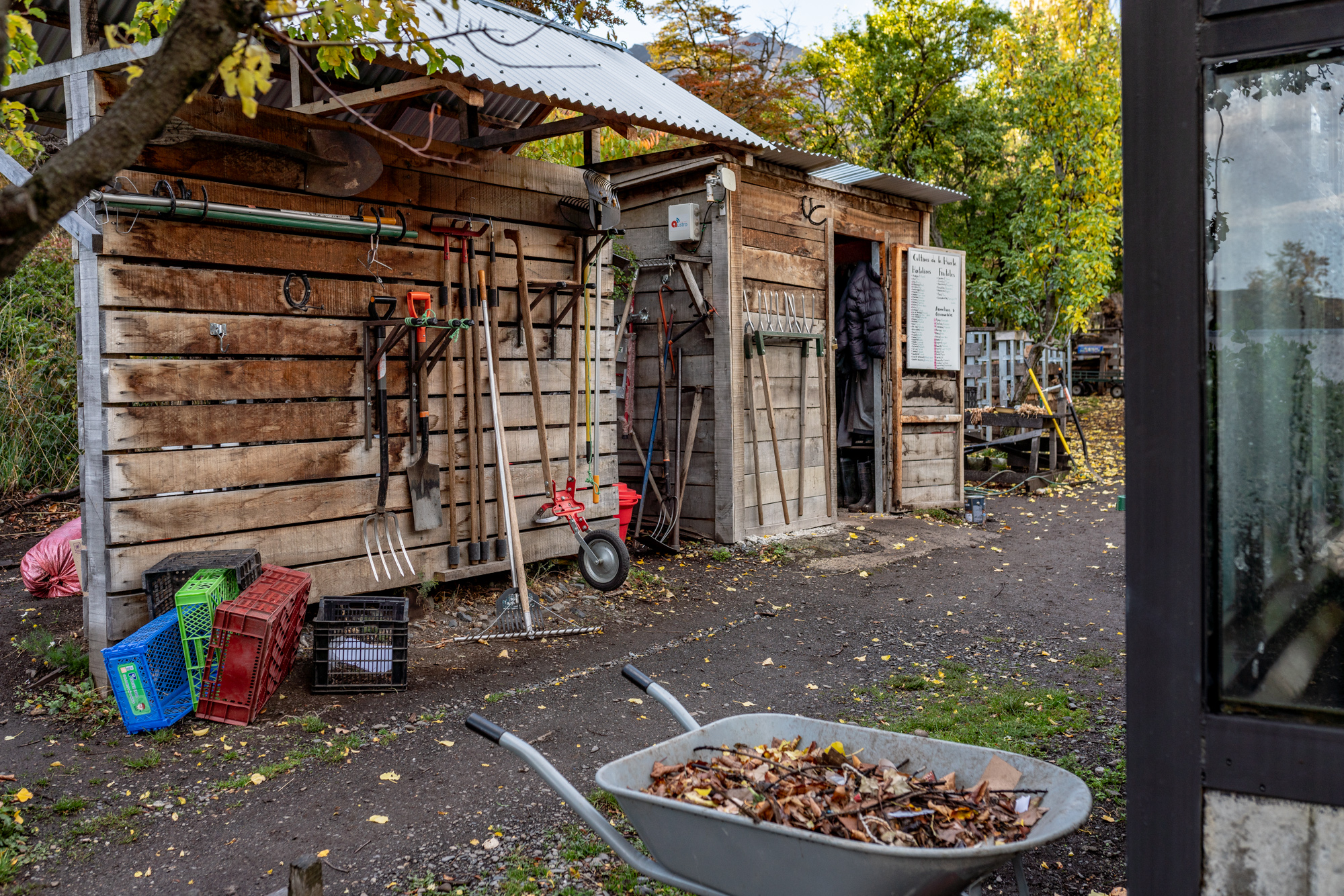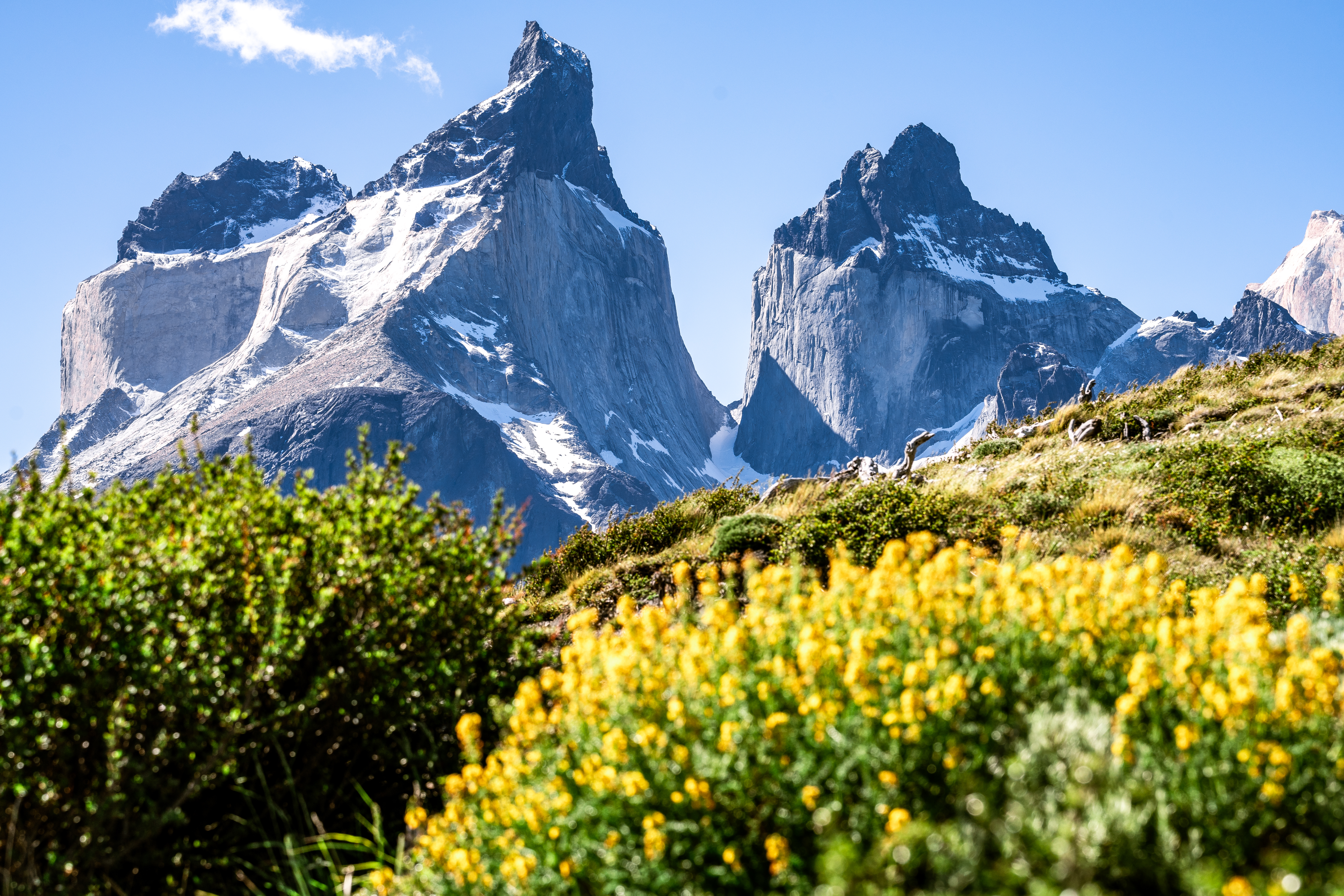Our Sustainable Initiatives in Waste Reduction in Torres del Paine
In April 2025, we concluded an unforgettable season at Las Torres Patagonia, marked by significant milestones such as the renaming of our NGO from AMA Torres del Paine to Las Torres Patagonia Conservancy, reaffirming our commitment to conservation. We also celebrated our first Sustainability in Action event, a unique gathering at the foot of Mount Almirante Nieto, which brought together visionaries and activists committed to environmental protection. Throughout the season, numerous initiatives were promoted in different areas of our operation, all guided by the principles of sustainability and conservation that we uphold in the Torres del Paine National Park. It has been a year of great progress, but we know that the best is yet to come.
A little over a month after the closing of our activities in the park, as we start to prepare for what will be coming in October of this year, it is time to look back and highlight all the achievements of our sustainability initiatives.
Our bio-intensive garden once again stood out. A wide variety of fresh fruits, vegetables and herbs were harvested and went directly to our restaurant's kitchen. Our sustainable cocktail bar also shone for its preparations and new approaches that went hand-in-hand with a circular economy. And in the Coirón Restaurant, we continued to improve our waste management, transforming a significant percentage of organic waste into biomaterials and compost for the garden.
In the following blog, we will give you details of all the results that made the 2024-2025 season a success for sustainability at Las Torres Patagonia.
Positive Transformation: From Waste to Biomaterials
Did you know that in a single season our operation generated more than 15,000 tons of organic waste from the hotel's three kitchens? For us, it is a problem we are aware of and are addressing through various strategies.
Waste such as eggshells, due to their high calcium content, and citrus remains proved difficult to compost, which compromised the garden's ability to process them. In fact, more than 1,000 kg of eggshells were discarded because they were not suitable for conventional composting, highlighting the urgent need to find a way to prevent this waste from ending up in landfills.
In order to utilize this waste in an innovative way, we have developed a way to convert it into biomaterials, using fruit and vegetable peels, eggshells, coffee grounds, seafood shells and more. These materials can be transformed into useful products such as building blocks, plastics and even bio-ceramics, like food containers made from eggshells. This process not only reduces the volume of organic waste sent to the garden, but also offers a sustainable alternative to contaminating materials.
Furthermore, the use of biomaterials provides a unique experience for guests, aligned with the sustainability principles that guide our daily operations.
55 Plant Species Harvested in Our Bio-intensive Garden
The 2024-2025 season was a great period for our bio-intensive garden. The garden welcomed a new manager, Catalina Rojas, who was put in charge of managing a team made up of agricultural professionals and volunteers from different corners of the world, eager to learn all the secrets of producing chemical- and pesticide-free food in the heart of the Torres del Paine National Park.
During this season, our bio-intensive garden yielded 55 species and varieties of fruits and vegetables, including novelties such as the edible flower mix, where we met the goal of becoming the sole provider of edible flowers for our guests' preparations.
In terms of fruit and vegetable production, our lettuces were undoubtedly the stars of the season, as we harvested no less than 457 kg. In second place, our mixed tomatoes shone, with almost 196 kg going directly to the hotel kitchens: more tomatoes than you could eat in 10 years! And third on the podium, our apples contributed close to 161 kg of flavor and freshness. A great achievement for sustainable agriculture developed in the often hostile climate of Patagonia.
Are you wondering what else we collected this season? Here is a short summary of some of our proud achievements from this period: plums, potatoes, zucchini, rhubarb, peas, radishes, beets, Chiloé potatoes, blackcurrants, chard, mustard, pears, broad beans... the list goes on. Without a doubt, it was an excellent season for our bio-intensive garden, which continues to grow with love in the heart of the Torres del Paine National Park.
2,676 Kilograms of Compost Produced in Torres del Paine!
Continuing with the achievements of our bio-intensive garden, it is not only the cultivation of fruits, vegetables, herbs and edible flowers that has kept our team busy. The space also receives organic waste from the hotel kitchens, which is transformed into compost. In this way, we close the virtuous cycle of Hotel Las Torres, where everything that comes from the earth returns to it, enriching the soil and making it possible for our crops to continue growing strong and free of chemicals or pesticides.
For the 2025-2026 season, we produced a total of 2,676 kg of compost. March was our best month, when we were able to produce... 700 kg of compost! But that wasn’t all. During the season, we also managed other types of waste that, although not being able to go directly to compost, did find new life in our garden.
We processed bones from the kitchen to transform them into bone meal, a valuable natural fertilizer. In addition, together with the patio and maintenance team, we worked with fallen branches in the Estancia Sector, shredding them to keep the trails clear and, at the same time, utilizing their organic matter in soil management. We even treated more peculiar waste such as beer waste and other materials using the same approach.
In total, during the 2024-2025 season, our bio-intensive garden managed 394 kg of non-compostable organic waste, which also contributed to the cultivation cycles of what we produced.
Taking Glass Bottle Recycling to the Next Level
The Pionero Bar has become a benchmark for sustainable mixology in the region, thanks to the collaborative work of head bartender Federico Gil and Katherine Romero, the bar's sustainability manager. Together, they have developed a series of practices and initiatives that not only reduce and reuse waste, but also seek to align each drink prepared with the principles of sustainability that guide Las Torres Patagonia.
One of the Pionero Bar's most outstanding projects this season has been the development of eco-glasses, made from recycled glass bottles used in the bar itself.
This initiative, which began as an experimental exercise driven by Federico, has become more formal and structured with each season. During the previous season, the kiosk near to Hotel Las Torres was equipped to exclusively carry out this activity. It now has a new machine that allows for the precise cutting of glass bottles and a polisher that smooths the recently-cut edges, guaranteeing the safety and quality of the eco-glasses, which are used by our guests in the Pionero Bar.
During October and April of the 2024-2025 season, the Pionero Bar collected a total of 871 kg of glass bottles from different areas, including the bar, restaurant, excursions and housekeeping. All of this material was sent for recycling, both for immediate reuse and in order to continue developing new products for the following season.
Thanks to the processes in place, the Pionero Bar team can easily cut around 100 bottles and polish 50 of them in one day.
Bottles collected by area and sent for recycling:
- Pionero Bar: 402.66 kg.
- Coirón Restaurant: 444.36 kg.
- Excursions: 12.29 kg.
- Housekeeping: 13.01 kg.
Transforming Beer Waste into Vinegar and Gin
The Pionero Bar works closely with our bio-intensive garden to responsibly manage its organic waste. This waste is transferred to the garden to be incorporated into compost piles, to be used on our crops.
During the previous season, our bar began a new chapter in its sustainable practices, incorporating a waste recovery process through distillation.
Thanks to a still, it is now possible for Federico and his team to process beer waste from the Pionero Bar and other accommodation areas in Las Torres Patagonia. This distillation cycle lasts approximately one hour per batch, and transforms liquid waste into a new product.
During the season, 176 liters of beer were processed, and approximately five liters of alcohol were recovered for gin production.
This season, two vinegar makers were incorporated into the waste recovery process, with the aim of transforming beer waste into vinegar. The procedure consists of introducing the waste into specially-designed containers, where it can be left to ferment for approximately one month.
During the season, we managed to transform 102 liters of beer into 81 liters of vinegar.
Giving a Second Life to Waste from Our Restaurant
The Coirón Restaurant, the ideal place to end your days exploring the Torres del Paine National Park, also proudly reflects our commitment to sustainability. Over the past few seasons, it has become an example of applying different practices for responsible operation at each of its stages, from leveraging supplies to reducing waste and creatively reusing materials.
An example of this is an alliance that has been established with the Compost Coirón company, with the purpose of giving a second use to the sacks used for transporting supplies. Thanks to this collaboration, these materials are reused by the company for compost storage, thus contributing to the circular economy and avoiding the generation of unnecessary waste. During the previous season, 410 reusable sacks were delivered to the company.
One of the main problems identified by our teams in the Coirón and Pionero kitchens was the high generation of residual oil. During the 2024-2025 season, the weekly average generation of this material was estimated to be 60 liters.
This situation was resolved with an alliance with the Rendering company, who specialize in recycling used oils for the production of biofuels. Thanks to this collaboration, a total of 1,509 liters of used oil were delivered to the company.
From the Garden to the Table and the Table to the Garden
Like the Pionero Bar, our Coirón Restaurant has also developed an alliance with our bio-intensive garden for the management of organic waste, in order to reuse it in different processes. This strategy responds to our commitment at Las Torres Patagonia to minimize the amount of waste that ends up in the trash.
Between February and April of the 2024-2025 season, the Coirón Restaurant implemented significant improvements in the management of fresh organic waste from its kitchens. The use of biodegradable bags was replaced by 30-liter drums, which allowed us to better control the weight of the waste, facilitate transportation and eliminate the use of approximately 520 bags.
In addition, Coirón developed a protocol for segregating bones from the meat served in the restaurant, complying with all sanitary regulations, with the aim of safely delivering this waste to our garden. Through this initiative, more than 50 kg of clean bones were delivered and processed for the production of bone meal, a natural fertilizer that strengthens the composting system and improves soil nutrition.
Another important action that we carried out this season was the segregation of dry waste, in particular low-ink cardboard like that used in box lunch bags, sandwich boxes and egg trays. These materials were delivered to our garden to be incorporated into compost piles, becoming a key ingredient in the process. Between both kitchens at Hotel Las Torres, we were able to collect more than 46 kg of this type of cardboard, making it part of the composting process.
Thanks to these and other actions, Las Torres Patagonia's commitment to regenerative tourism continues to expand, promoting low-impact travel and reducing our carbon footprint. For more information on our sustainable initiatives, please visit the following website.




_resultado.jpg?width=2000&height=1333&name=Las%20Torres%20-%20Bar%20(6%20de%201)_resultado.jpg)



.jpg)